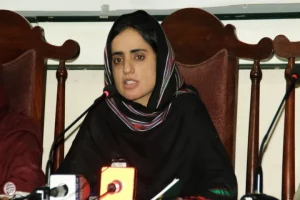In a recent social media post, Pakistani journalist Hamid Mir highlighted a troubled pattern concerning the treatment of women by Islamabad’s police force.
He pointed out a past incident where over 200 Baloch women, including young girls, were arrested and held despite court orders. Mir criticised the silence of major political parties regarding what he described as the inhumane treatment of Baloch women in the federal capital.
Mir’s comments came after PTI leader Omar Ayub Khan reported that 11 out of 13 PTI women who were arrested and unlawfully held by Islamabad police had been released.
In a post on X, Hamid Mir stated, “Same Islamabad ladies police arrested more than 200 Baloch women, including small girls, last year. They never released them despite IHC orders. All main political parties remained silent on that inhuman treatment of Baloch women in the capital of Pakistan. Unfortunately, same thing happening with PTI today by same ladies police and will happen again with PML-N in future”.
Same Islamabad ladies police arrested more than 200 Baloch women including small girls last year. They never released them despite IHC orders. All main political parties remained silent on that inhuman treatment of Baloch women in the capital of Pakistan. Unfortunately same thing… https://t.co/lOP6zQAVvR
— Hamid Mir حامد میر (@HamidMirPAK) July 23, 2024
Earlier, PTI leader Omar Ayub Khan had stated, “11 PTI Ladies out of 13 arrested and illegally detained at the Sitara Market Women Police Station were released at 3 a.m. The PTI ladies were kept in illegal confinement against their will. This is a case of outright abduction.”
Last year, during a cold December night, several Baloch women and children were detained without charge at the women’s police station in Islamabad. The incident occurred during a “long march” from Turbat, near the Iranian border in Balochistan, to the Pakistani capital. Covering over 900 miles, the march traversed villages, towns, and cities across the country as a protest against enforced disappearances and extrajudicial killings in the province.
The illegal detention of Baloch people in Pakistan has been a longstanding and contentious issue, drawing significant international and domestic scrutiny. Baloch activists and human rights organisations have documented numerous cases where individuals, including political activists, students, and journalists, have been arbitrarily arrested and held without due process.
The key concerns include allegations of enforced disappearances, where individuals are apprehended by security forces or intelligence agencies and subsequently held in undisclosed locations without acknowledgment or legal recourse. Families often endure prolonged uncertainty about the whereabouts and well-being of their loved ones, exacerbating the distress and trauma experienced.
Critics argue that these practices violate fundamental human rights principles, including the right to a fair trial, protection from torture, and freedom from arbitrary detention. The Pakistani government has faced calls from both domestic and international bodies to address these issues, ensure transparency in law enforcement practices, and hold accountable those responsible for human rights abuses.




















